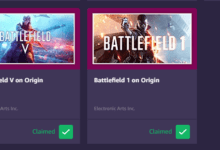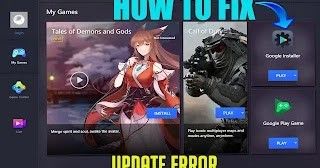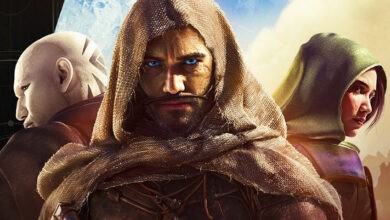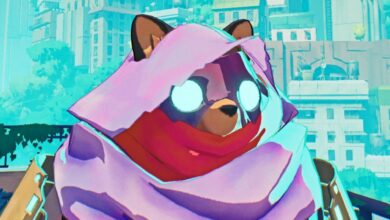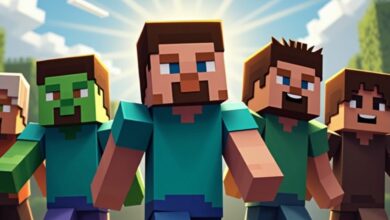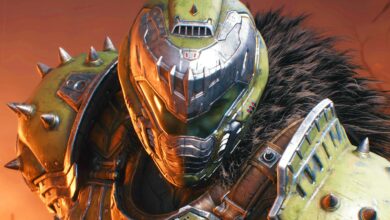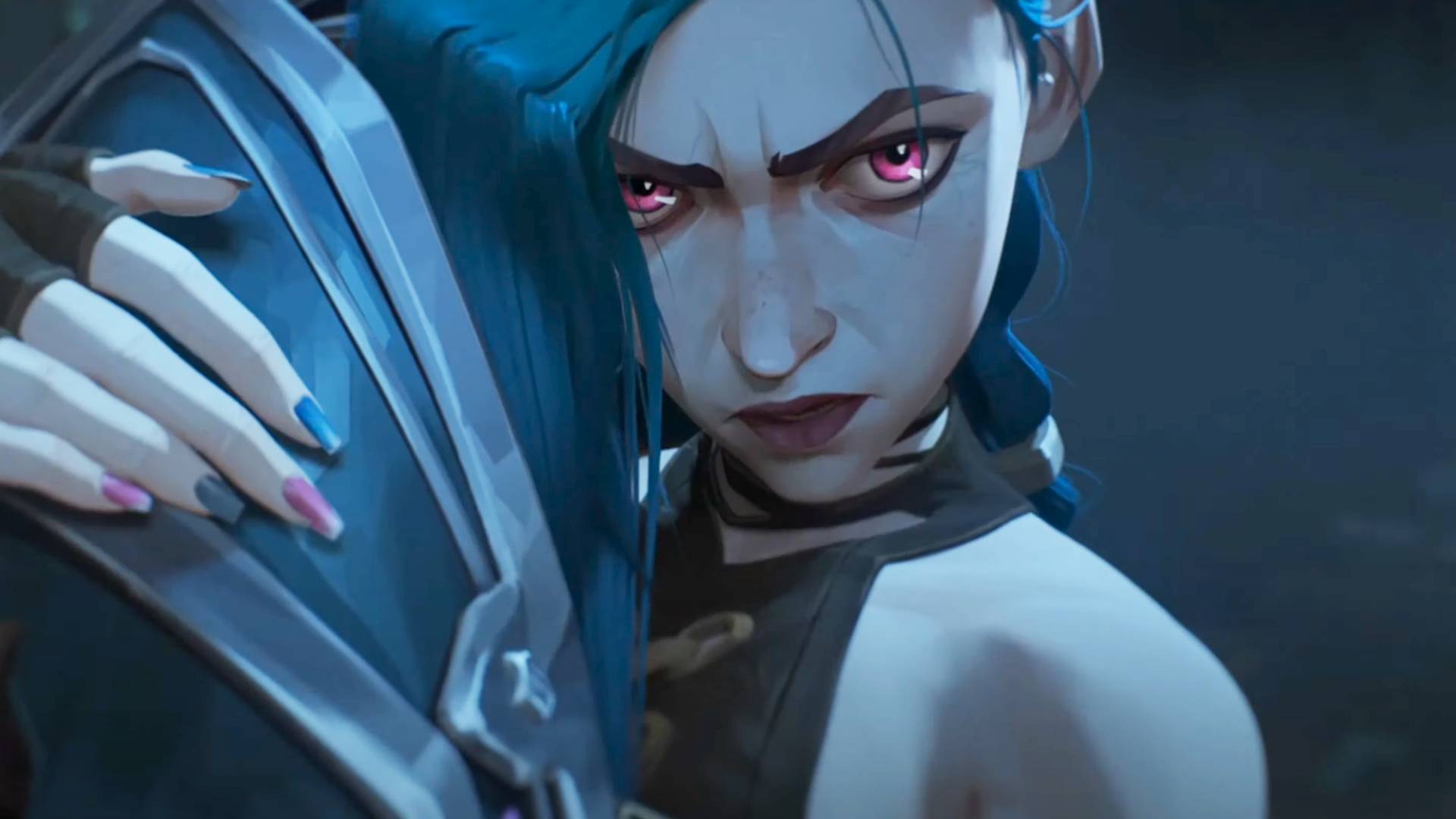
“You walk along the edge of danger, and it will change you,” rumbles Woodkid. Vi and Jinx conflict, illuminated in frantic neon because the lifeless, stony eyes of a long-forgotten Janna mural gaze down in silent disapproval. Concurrently, Ekko, Heimerdinger, and Jayce have found The Anomaly and the extent of its corruption. Every part fades to white as Jayce reaches out a hand, and Caitlyn and Vi’s Hextech begins to malfunction. It’s the scene we’ve all been ready for – the large battle, the climax of Season 2 Act 1. Whereas, animation-wise, it’s good, Woolkid’s dulcet tones actually do convey the motion to life. That’s the story of Arcane usually; its soundtrack isn’t only a soundtrack, it’s a heartbeat; a symphony of complicated feelings. Within the wake of Act 3, I ask producer Alex ‘Mako’ Seaver the way it all got here collectively, and the way the crew handled the strain of soundtracking one of many biggest videogame diversifications put to display screen.
Our dialog opens with a dialogue about Arcane’s legacy and the way, whereas it could disappoint some, the two-season mannequin seems like the best resolution. Mako tells me that he knew from “day one” that this was a “two-season story,” and whereas some have speculated in any other case, he tells me that “we had already been working on Season 2 before Season 1 even released; it was already cooking as a two-season arc. I admire and respect storytellers that are like ‘I don’t want to overstay my welcome, I just want to tell this exact story, and I’m sticking to it.’”
It’s a sentiment I wholeheartedly agree with. Having watched childhood favorites like The Vampire Diaries and Supernatural run themselves into the bottom, splitting Arcane into two condensed elements seems like the best name. However, naturally, the strain quadruples in consequence: Arcane Season 1 was spectacular, so Season 2 in some way must be even higher, particularly as a result of it’s transcended the League of Legends viewers. I ask Mako how that feels.
“Making a Season 2 is so different from making a Season 1,” he tells me. “While you present up with a Season 1 it’s type of a present for individuals as a result of they didn’t understand it existed; they didn’t understand it was coming. Then, [from] the primary minute of Season 2, the expectations are large.
“The pressure is weird: I always compare it to playing Mario Kart,” he continues, eliciting a beat of bamboozled silence from this author – I do know it’s late, however did he simply say Mario Kart? He laughs: “When you do a little time trial and you’re racing against the ghost of your own personal best time? That’s kind of what it feels like; you’re racing against yourself but you’re trying to keep up and beat what you did before.”
However, with Arcane, it’s not a case of outdoing itself. As a substitute, the main target is on reinvention – taking the characters and settings that we love a lot and evolving them. “One of the things I love about working with Christian [Linke, co-creator and showrunner of Arcane] is that he doesn’t really care that much about trying to exceed things, he just wants to make something that’s dope and different. A lot of times what gets him excited is ‘okay, we did that thing that was pretty cool, what can we do that’s totally different than that?’”

And Arcane Season 2 does really feel very, very completely different from its predecessor. In my Act 1 overview I notice that “where Season 1 is the perfect introduction to the world of League of Legends, Season 2 showcases the scale and dangers of Runeterra.” Every part simply feels greater: Piltover and Zaun are simply two gamers in a wider, international narrative. To me, the season’s soundtrack displays this. The place Season 1 was heavy and grungy, Season 2 sees every thing from sluggish, lamenting ballads and rolling nation to hardcore heavy metallic and gritty punk rock electronica.
“[The soundtrack] is bigger because the story has kind of exploded. Season 1, to me, felt like a really deep inner character story, and they’re surrounded by these amazing landscapes in Piltover and Zaun, but it’s still [Jinx and Vi]. Season 2 starts to become global: it’s them; it’s Noxus coming into the picture; it’s all of these champions merging.”
He tells me that Linke and Fortiche method him with “moods” as an alternative of asking for particular genres, taking Hellfire as his instance. “It’s this awful montage of Caitlyn going to the dark side and it’s got echoes of police brutality and of all kinds of just awfulness.”
However the soundtrack switches so simply from these heavier, darker moments to glints of brightness with unbelievable fluidity, so I ask how he blends all of those completely different tones and emotions whereas sustaining cohesion. “It’s a very diverse soundtrack, and it’s one of the things I love about it, but it’s also one of our concerns – how do you go from a doom-death metal song to a ballad into a Shuriman chant piece? I don’t know if it is cohesive – we try really hard to make it that way – but we score these songs to picture, so we’re just marrying everything so deliberately to what you’re seeing. I think that’s what gives the Arcane soundtrack the special sauce; it’s not pre-written songs that just get edited or sync-licensed onto the picture.”

Whereas the soundtrack relies fully on the on-screen motion, there are glints of nostalgia for longtime League of Legends gamers. The ever-iconic Get Jinxed performs a number of instances throughout each seasons after which there’s the orchestral model of Rise that I praised so extremely in my Arcane Season 2 Act 2 overview. The present completely blends nostalgia with modernity, so I ask Mako about how the crew balances every thing so properly and avoids, to borrow his phrases, “goofy easter eggs.”
“These champions are probably aware of some of these song moments,” he says. “Jinx would program Get Jinxed! into Sevika’s arm because she’s such a motherfucker and she’s always pulling one over on her – that’s a narrative thing; Jinx made that decision, not the show’s music creators.”
There are myriad delicate references to Season 1’s soundtrack, too, with Mako stating that my favourite monitor of the bunch, Sucker, borrows language from the Season 1 soundtrack – particularly Soiled Little Animals by Bones UK. “I wrote Sucker, and I started using quotes from Season 1’s soundtrack – I started describing the people of Zaun as dirty little animals because we had a song set in Zaun in Season 1. It’s really a fun playground to be like ‘let’s draw from our own musical lore to paint across the world.” I reckon that paint would most likely be blue.
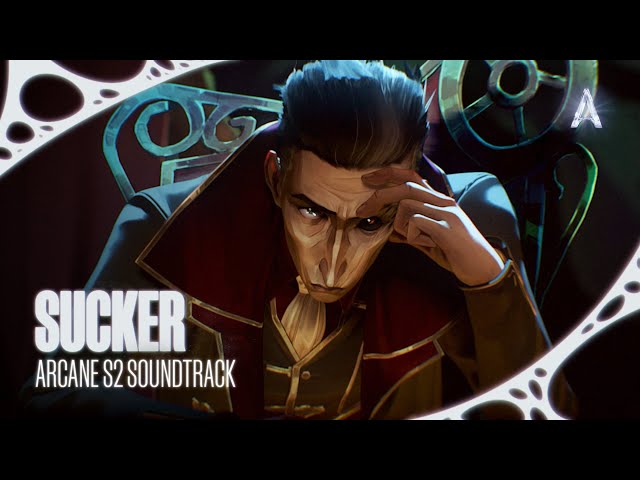
I’ve liked Riot Video games’ music from the very first time I booted up League of Legends. I keep in mind the animated wallpaper of Xayah and Rakan, their The Insurgent and The Charmer theme taking part in within the background. Whereas League of Legends as a recreation is, after all, Riot’s major focus, the artistic ecosystem that’s sprouted round it’s really one thing particular. From Okay/DA and Pentakill to the Worlds anthem and season cinematic, Riot has created a musical universe that’s in contrast to some other videogame.
Arcane’s soundtrack is an absolute masterpiece; it’s turn out to be my nighttime drive music and my office companion. Most of all, nonetheless, it helped me by a fairly tough time, and in consequence it’ll by no means cease being particular. So when Woodkid asks “Why would you let this voice set in your head?” truthfully, I can’t assist it. It’s all simply so rattling catchy.



